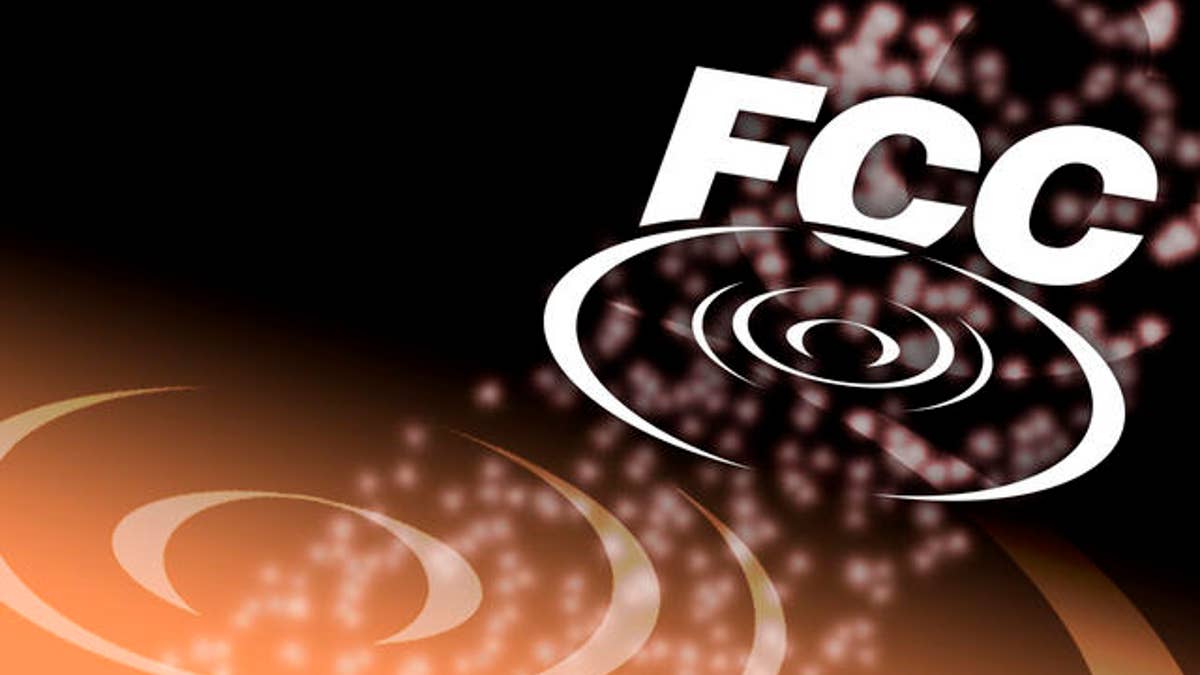
FILE -- A Friday, March 12, 2010 file photo shows FCC Chairman Julius Genachowski in his office in Washington. FCC Chairman Julius Genachowski, has proposed to define broadband access as a telecommunications service subject to "common carrier" obligations to treat all traffic equally. (AP Photo/Jacquelyn Martin/file) (AP)
A Federal Communications Commission rule allowing it to fine broadcasters who air the occasional F-bomb or naked butt will get a second review by the Supreme Court.
The justices announced Monday they will once again delve into the world of fleeting expletives and nudity that cross the airwaves when they return from their summer recess in October. Two years ago the court, in a 5-4 decision, upheld the FCC's right to impose such a rule but left unresolved whether it violates free speech protections. The case granted Monday directly addresses that question.
The dispute revolves around the utterance of "f---" and "s---" by Bono, Cher and Nicole Ritchie during the live broadcast of award shows nearly a decade ago. In enforcing its new policy against "fleeting expletives," the FCC sanctioned Fox Broadcast for allowing those words to air unfiltered into American homes.
The FCC says the foul language, which aired during prime time, generated a record number of complaints from viewers -- many of whom were watching with children.
Last year, the Second Circuit U.S. Court of Appeals invalidated the FCC's rule and overall policy on indecency as impermissibly vague. While it did not question that the words said during the awards shows were indecent, it concluded that the FCC's policy was so broad that broadcasters could be sanctioned for airing cultural or news programs that happened to contain foul language or nudity.
The court also struck down fines forced on several ABC stations that aired an episode of "NYPD Blue" in which viewers saw the uncovered backside of a female character.
After some delay, the Obama administration decided to appeal the 2nd Circuit's rulings. Principal Deputy Solicitor General Neal Katyal said the 2nd Circuit's decisions "preclude the FCC from carrying out its statutory responsibility to ensure that broadcasters honor their longstanding public interest obligation not to air indecent material."
The government's appeal is supported by the Parents Television Council which says millions of Americans still depend on over-the-air signals (rather than cable or satellite) for their television viewing. It says the justices "need not guess what the broadcasters will do with broadcast television programming if the 2nd Circuit's holding in Fox is left undisturbed," PTC lawyer Robert Sparks wrote to the court. "The future is now on basic cable television, " he added.
The group cites studies showing the increasing prevalence of foul language, nudity and sexual situations on cable in recent years.
Fox's lawyers say the government's appeal is "startling" for placing too heavy of an emphasis on the high court's 1978 Pacifica ruling that determined a broadcast of comedian George Carlin's "seven dirty words" monologue was unconstitutional. They point to another high court ruling on the prohibition of indecency they say works in their favor and more fundamentally argue the FCC's rule is just too vague.
"The FCC's new, more expansive prohibition on indecency has produced absurdly inconsistent and subjective decisions in which words and actions found to be lawfully offensive in some instances are found to be non-actionable on others, producing a standard that even the FCC cannot articulate or apply consistently," Fox lawyer Carter Phillips wrote to the court asking the justices to uphold the 2nd Circuit decision and deny the government's appeal.
Two years ago, Justice Clarence Thomas gave a strong signal on how he views the matter. Thomas sharply criticized the 1978 Pacifica decision and another court ruling in favor of the fairness doctrine. He said his 2009 concurrence with Justice Antonin Scalia only extended to the finite technical issues related to the FCC's ability to change its policies and remains "open to reconsideration" of the Pacifica case.
Note: Fox News Channel and FoxNews.com are owned and operated by News Corporation, as is Fox Broadcasting, the main respondent in this case.




